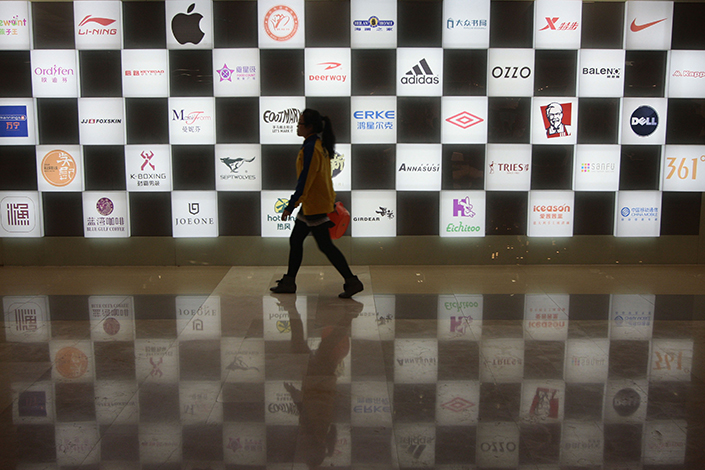China Moves to Evict Trademark Squatters

China is taking aim at people and companies that register trademarks but have no plan to actually use them.
Those implicated in “malicious registration” of such intellectual property will be added to a new blacklist — making it difficult for offenders to acquire future trademarks.
The planned database seeks to address the millions of product names that have been registered but left idle, according to Cui Shoudong, a deputy head of China’s State Administration for Industry and Commerce (SAIC).
The move could also help foreign firms that have seen rampant appropriation of their respective brands.
That China is frowning upon this practice was underscored by a high-profile case brought in 2012 by American basketball legend Michael Jordan against Qiaodan Sports Co. Ltd., a Fujian-province maker of athletic gear. Qiaodan is the Mandarin transliteration of “Jordan.”
China’s Supreme People’s Court ruled in December that the brand name violated Jordan’s rights to his personal name and ordered the Trademark Review and Adjudication Board — which had backed the privately owned Qiaodan in a previous arbitration ruling — to review its decision.
However, Cui — who spoke at a recent international trademark forum in Guilin in South China’s Guangxi Zhuang autonomous region — did not offer a time frame for the database’s launch.
Cui attributed the inefficient use of registered trademarks in the country to profiteers who try to cash in on trademark squatting. A secondary reason is the large number of unused trademarks that legitimate business owners register to protect their brands by filing as many as possible — in part to fend off squatters, Cui said.
There were 3.53 million trademark applications registered from mid-December 2015 to mid-December 2016, the SAIC reported. A total of 2.12 million applications were approved in that same period.
In the first half of this year, 2.19 million trademarks were filed, and 1.15 million were approved.
Malicious trademark registration is defined under Chinese law as knowingly filing an unregistered trademark that has already been used by another party, or applying for a trademark similar to an existing one for the purpose of profiteering.
Trademark squatting remains rampant in China, even though the country’s Trademark Law explicitly prohibits the practice, said Yang Ming, a professor of intellectual property at the Peking University’s School of Law.
Part of the problem has been the lack of such a database to track abuses, he said.
“Once such a database is set up, blacklisted violators will be subjected to tighter scrutiny in new applications, and they will have weakened credibility arguing against other businesses in trademark disputes at court,” Yang said.
However, regulators should show prudence in using the list by allowing alleged violators avenues to make their case against being blacklisted, and by providing a path to be delisted when appropriate, Yang said.
In addition to creating the database, the SAIC said it will tighten oversight of new trademark applications and specifically target the filing of trademarks associated with celebrities, both alive and deceased, Cui said.
Contact reporter Li Rongde (rongdeli@caixin.com)

- PODCAST
- MOST POPULAR







